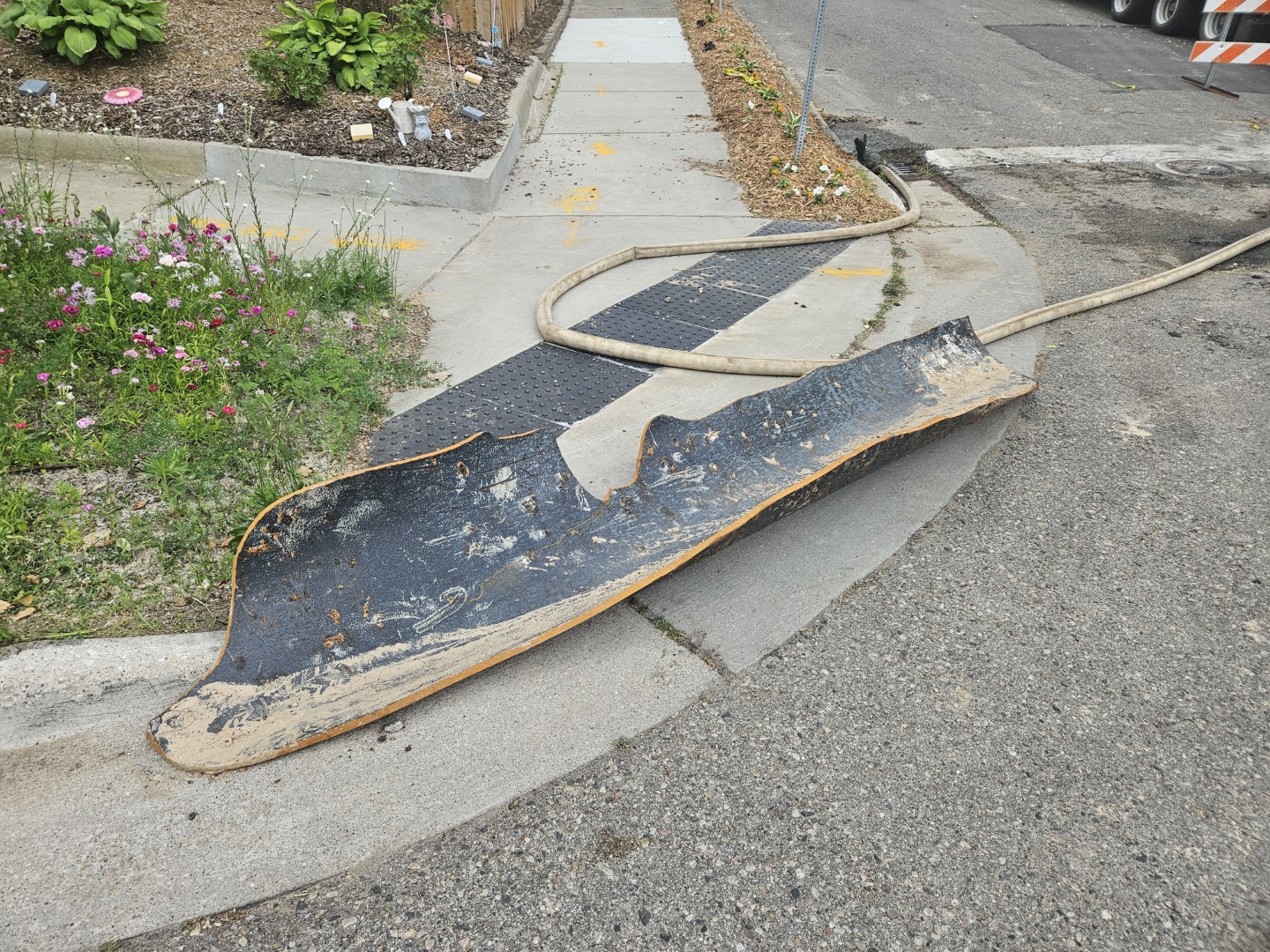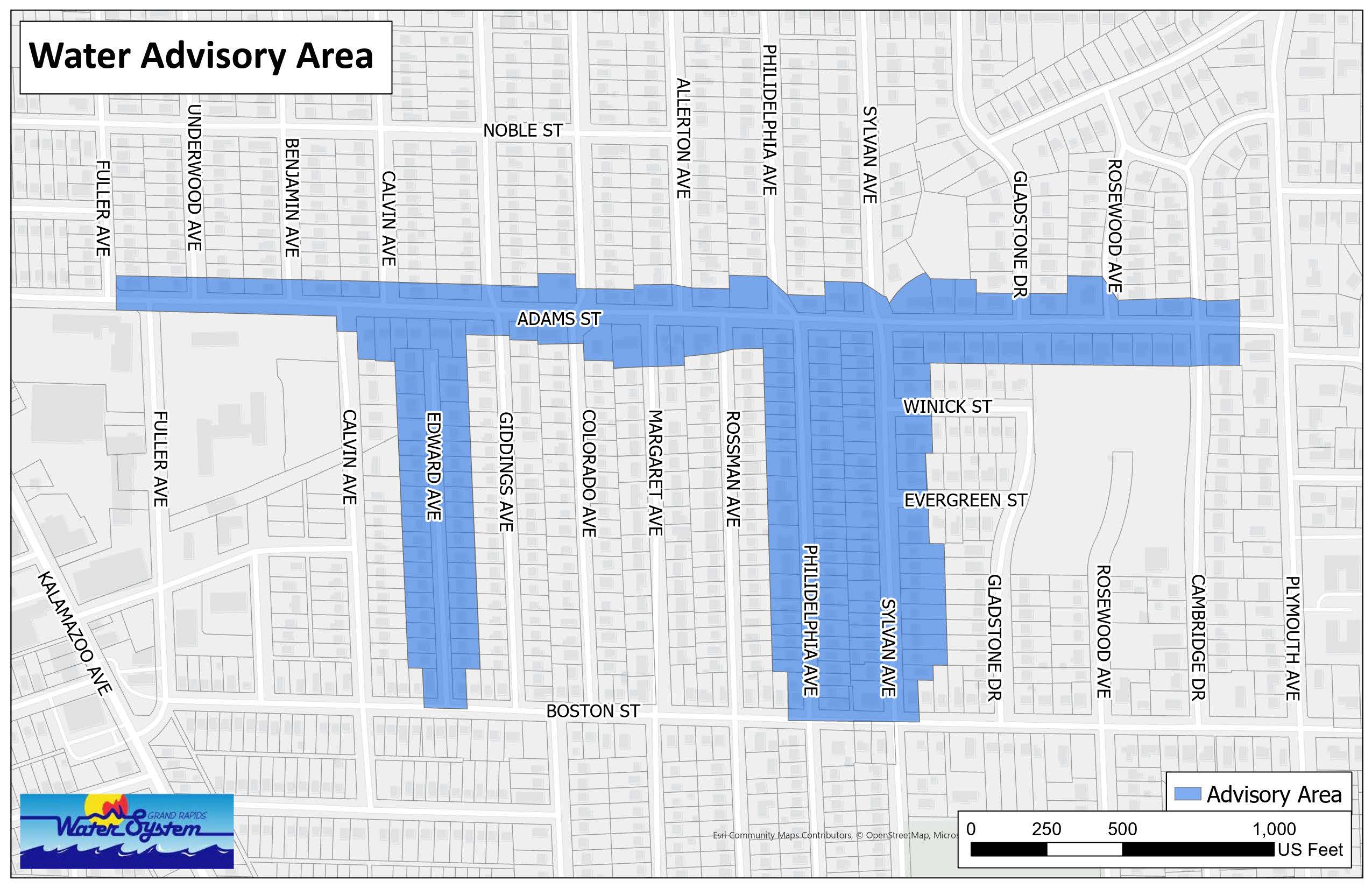Understanding The Boil Water Advisory In Grand Rapids: What You Need To Know
Grand Rapids residents have recently been advised to boil their water before use due to potential contamination concerns. This precautionary measure is critical to ensuring public health and safety, as waterborne illnesses can spread quickly if proper steps aren't taken. Whether you're a long-time resident or new to the area, understanding the implications of a boil water advisory is essential. These advisories are typically issued when there’s a risk of harmful bacteria or contaminants entering the water supply, often due to infrastructure issues, natural disasters, or routine maintenance. In this article, we’ll delve into what this means for you, how to stay safe, and what steps to take if you’re affected.
A boil water advisory is more than just an inconvenience—it’s a call to action. During such times, it’s important to know how to properly boil water, which activities require boiled water, and how long the advisory might last. Residents in Grand Rapids may find themselves asking questions like, “How long should I boil water to ensure it’s safe?” or “What happens if I accidentally drink unboiled water?” We’ll address these concerns and provide actionable tips to help you navigate this situation with confidence. By the end of this guide, you’ll have a clear understanding of how to protect yourself and your family during a boil water advisory.
While boil water advisories are temporary, they highlight the importance of having a plan in place for emergencies. From stocking up on bottled water to knowing how to sanitize your home after the advisory is lifted, being prepared can make all the difference. In this comprehensive guide, we’ll cover everything you need to know about the boil water advisory in Grand Rapids, including its causes, impacts, and long-term solutions. Let’s dive in and equip you with the knowledge you need to stay informed and safe.
Read also:Discover The Best Italian Restaurants In Manhattan A Culinary Journey
Table of Contents
- What Is a Boil Water Advisory in Grand Rapids?
- Why Is There a Boil Water Advisory in Grand Rapids Right Now?
- How Does a Boil Water Advisory Affect You?
- What Should You Do During a Boil Water Advisory?
- How Can You Ensure Water Safety at Home?
- What Happens After the Advisory Is Lifted?
- Frequently Asked Questions About Boil Water Advisories
- Conclusion: Staying Safe During a Boil Water Advisory
What Is a Boil Water Advisory in Grand Rapids?
A boil water advisory is a public health announcement issued by local authorities to inform residents that their tap water may not be safe to drink unless it is boiled first. This advisory is typically triggered by events that could compromise the quality of the water supply, such as broken water mains, power outages, or natural disasters like floods. In Grand Rapids, these advisories are managed by the local water utility department, which works closely with health officials to monitor water quality and ensure public safety.
When a boil water advisory is in effect, residents are advised to bring water to a rolling boil for at least one minute before using it for drinking, cooking, brushing teeth, or preparing food. This process kills harmful bacteria, viruses, and parasites that may be present in the water. While the advisory is in place, it’s also important to avoid using untreated tap water for activities like washing dishes, making ice, or preparing baby formula. Instead, use bottled water or water that has been properly boiled and cooled.
What Are the Common Causes of a Boil Water Advisory?
Several factors can lead to a boil water advisory in Grand Rapids. These include:
- Water Main Breaks: When a water main breaks, contaminants from the surrounding soil can enter the water supply, posing a health risk.
- Power Outages: A loss of power at water treatment plants can disrupt the filtration and disinfection processes, compromising water quality.
- Natural Disasters: Events like floods or storms can overwhelm water systems and introduce harmful substances into the water supply.
How Does the Advisory Work?
Once a potential issue is identified, the water utility department will issue a boil water advisory to notify residents. During this time, water samples are collected and tested to determine if contaminants are present. If the tests confirm that the water is safe, the advisory is lifted, and residents are informed that they can resume normal water usage. This process typically takes 24 to 48 hours but can vary depending on the severity of the issue.
Why Is There a Boil Water Advisory in Grand Rapids Right Now?
If you’re currently under a boil water advisory in Grand Rapids, you’re likely wondering what caused it. These advisories are often a response to specific incidents or conditions that threaten the safety of the water supply. In this section, we’ll explore the possible reasons behind the current advisory and what steps are being taken to resolve the issue.
Could Recent Infrastructure Repairs Be to Blame?
One common cause of boil water advisories is infrastructure repairs or maintenance. When water mains are repaired or replaced, there’s a risk that dirt, debris, or other contaminants could enter the system. This is especially true in older neighborhoods where the water infrastructure may be more prone to leaks or breaks. If you’ve noticed recent roadwork or utility repairs in your area, this could be a contributing factor to the current advisory.
Read also:Salt Trick In Shower For Men A Simple Solution For Better Health
Is the Advisory Related to Weather Conditions?
Weather events can also play a significant role in triggering boil water advisories. For example, heavy rainfall or flooding can overwhelm water treatment facilities, leading to untreated water entering the distribution system. Similarly, freezing temperatures can cause pipes to burst, creating openings for contaminants to seep in. If Grand Rapids has recently experienced unusual weather patterns, this could explain the advisory.
How Does a Boil Water Advisory Affect You?
A boil water advisory can have a significant impact on daily life, from how you prepare meals to how you care for your family. Understanding these effects can help you adapt and minimize disruptions. Let’s explore the key areas where a boil water advisory might influence your routine.
What Daily Activities Are Affected by the Advisory?
During a boil water advisory, many everyday activities require extra precautions:
- Drinking Water: Tap water must be boiled before consumption to eliminate potential contaminants.
- Cooking: Any water used in food preparation, including washing produce or making pasta, should be boiled first.
- Hygiene: While showering is generally safe, avoid swallowing water. Use boiled or bottled water for brushing teeth.
How Can the Advisory Impact Vulnerable Populations?
Children, the elderly, and individuals with weakened immune systems are particularly vulnerable during a boil water advisory. These groups are more susceptible to waterborne illnesses, making it crucial to take extra care when preparing food or drinks for them. For example, parents should ensure that baby formula is prepared with boiled or bottled water, and caregivers should monitor elderly family members for signs of dehydration or illness.
What Should You Do During a Boil Water Advisory?
Knowing how to respond during a boil water advisory can help you stay safe and reduce stress. Here are some practical steps to follow:
- Boil Water Properly: Bring water to a rolling boil for at least one minute. If you live at a high altitude, boil it for three minutes.
- Use Bottled Water: If boiling isn’t an option, use bottled water for drinking, cooking, and brushing teeth.
- Avoid Ice from Tap Water: Discard any ice made from tap water during the advisory period.
What About Pets and Livestock?
Don’t forget about your furry friends! Pets and livestock can also be affected by contaminated water. Provide them with boiled or bottled water to ensure their safety. If you’re unsure about your pet’s water needs, consult a veterinarian for guidance.
How Can You Ensure Water Safety at Home?
Ensuring water safety during a boil water advisory goes beyond just boiling water. Here are some additional tips to keep your household safe:
- Sanitize Surfaces: Clean countertops, utensils, and dishes with boiled or bottled water to prevent cross-contamination.
- Check Water Filters: If you use a water filtration system, ensure it’s designed to remove bacteria and viruses.
- Store Water Safely: Keep boiled water in clean, airtight containers to maintain its safety.
What Happens After the Advisory Is Lifted?
Once the boil water advisory is lifted, it’s important to take steps to ensure your home is free from contamination. This includes flushing pipes, cleaning appliances, and sanitizing surfaces that may have come into contact with untreated water.
How Do You Flush Your Plumbing System?
To flush your plumbing system, run all cold-water taps for several minutes. Start with the tap closest to where the water enters your home and work your way to the farthest tap. This process helps remove any residual contaminants from the pipes.
Frequently Asked Questions About Boil Water Advisories
How Long Should I Boil Water to Ensure It’s Safe?
Water should be boiled for at least one minute to kill harmful microorganisms. If you live at a high altitude, extend the boiling time to three minutes.
Can I Use a Water Filter Instead of Boiling?
Most standard water filters are not designed to remove bacteria or viruses. For guaranteed safety, boil water or use bottled water during an advisory.
What Should I Do If I Accidentally Drink Unboiled Water?
If you accidentally consume unboiled water, monitor yourself for symptoms of waterborne illness, such as diarrhea or nausea. Contact a healthcare provider if you experience any adverse effects.
Conclusion: Staying Safe During a Boil Water Advisory
A boil water advisory in Grand Rapids is a temporary measure to protect public health, and understanding how to respond is key to staying safe. By following the guidelines outlined in this article, you can ensure that your water is safe to use and minimize the impact on your daily life. Remember to stay informed, take precautions, and reach out to local authorities if you have questions or concerns.
For more information on water safety, visit the EPA’s Drinking Water Emergency Resources.
Article Recommendations

